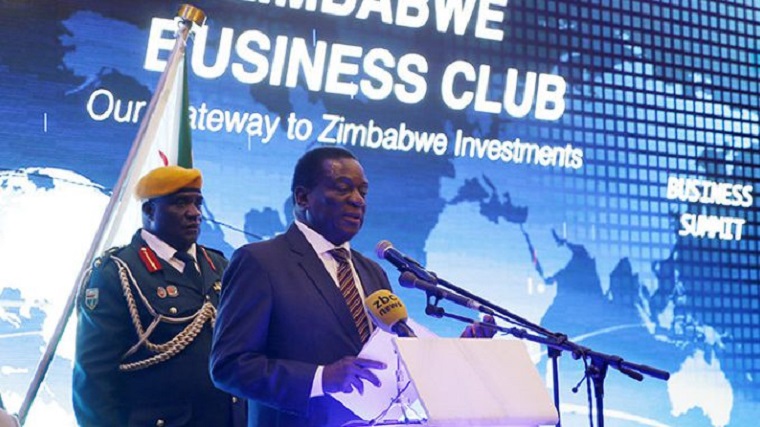British Minister of State for Europe and the Americas Alan Duncan says Zimbabwe will be under the spotlight tomorrow when it comes up for discussion at the Foreign Affairs Council which will be chaired by the High Representative of the European Union for Foreign Affairs and Security Policy, Federica Mogherini.
President Emmerson Mnangagwa is travelling to Europe where he will attend the World Economic Forum summit at Davos.
The Financial Times which last week published a 15-page transcript of its interview with Mnangagwa today said Mnangagwa’s new Zimbabwe merits the world’s support.
“Emmerson Mnangagwa, the man who recently ousted Robert Mugabe as president of Zimbabwe after 37 years, will travel to Davos this week to tell the global elite that his country is ‘open for business’,” the FT said.
“Deeply compromised as he is by years as one of Mr Mugabe’s chief lieutenants, he deserves a hearing — but also a clear message that he will be judged by his actions, not his words.
“Mr Mnangagwa’s very appearance at Davos is a sign of change. Under Mr Mugabe, Zimbabwe became a pariah state. It broke with the IMF in 2001 after mounting a shambolic and violent campaign to seize white people’s land. It has been in arrears ever since, cutting itself off from international finance.
“Mr Mugabe retreated into sulky isolationism. The currency was immolated on a bonfire of hyperinflation. Today, one of the most educated and entrepreneurial population’s in Africa finds itself with almost no prospect of work. Many of Zimbabwe’s most talented are making a success of it in South Africa and further afield, forming a diaspora rich with experience and know-how,” it said.
“There are reasons to believe that, under Mr Mnangagwa, Zimbabwe could draw a line under elements of this sorry tale. True, he spent 50 years by Mr Mugabe’s side and was the ruthless enforcer of his leader’s authoritarianism. Mr Mnangagwa’s early cabinet appointments, including key military figures from November’s ‘non-coup’ coup, do not bode well. He should be appointing competent technocrats.
“Still, Mr Mnangagwa shows signs of being less of an ideologue than Mr Mugabe. He is making the right noises about foreign investment, scrapping harmful ‘indigenisation’ laws that were an excuse for state pillage and opening up the political system.”
The Financial Times warned that if the international community was too slow to bail out Mnangagwa might hunker down into ZANU-PF’s old ways but if it was too fast he will assume that he can get away with the mere rhetoric of change.
It added that Mnangagwa holds some cards though.
“After years of watching one of Africa’s most promising economies slide towards the abyss, the west will be inclined to give him the benefit of the doubt. He will also be able to count on China, which had grown tired of Mr Mugabe. Inevitably, Zimbabwe’s new leader will play something of a cat-and-mouse game. Yet like others who have inherited moribund systems at the dead-end of history — think South Africa’s FW de Klerk or China’s Deng Xiaoping — Mr Mnangagwa could be a transformative figure. The international community needs to play a cautiously supportive role to keep that possibility alive.”
(320 VIEWS)
